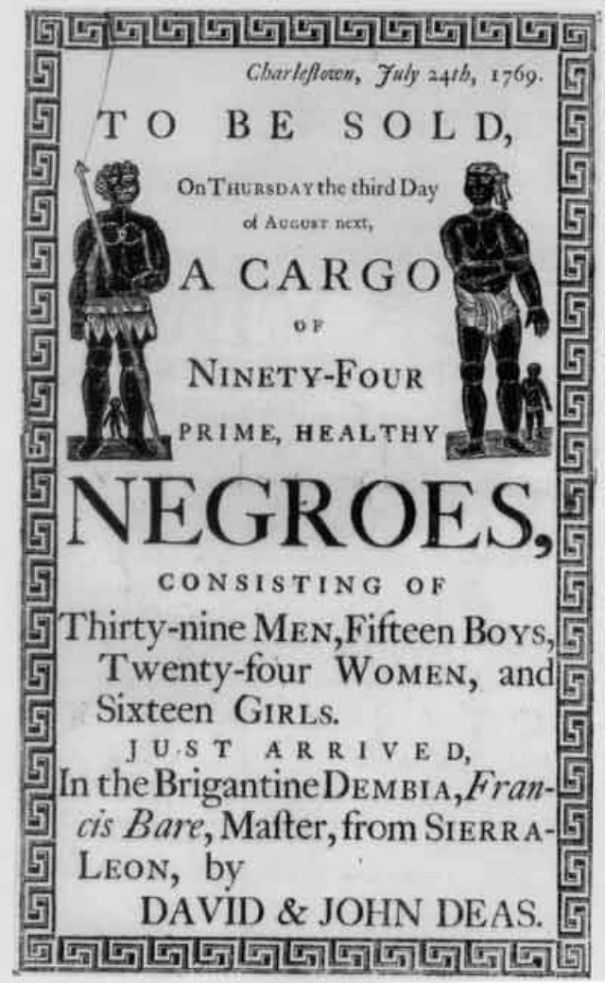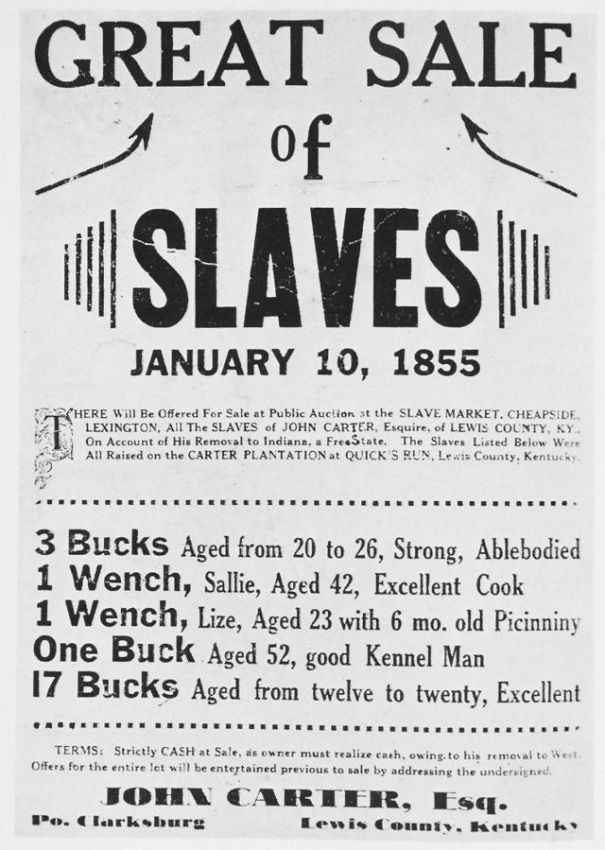Classified Ads: Slaves for Sale
by LeRoy Chatfield
How would you feel about owning a slave?
This is not a trick or facetious question, but a thoughtful and serious one. How would you feel about owning a fellow human being? If you are at all like me, you would say: Listen! stop right there!
Even the idea of owning another human being – like owning a dog or a horse or a pet rabbit – is crazy! Unthinkable! It is not just a repugnant thought, it is insulting to ask me how I would feel because it is illegal, unconstitutional, and just plain wrong! What kind of person do you think I am to even ask me how I would feel about owning a slave?
OK, fair enough! But if you lived in 1860 Louisiana where 22,000 citizens owned slaves and you had friends or family members or business associates or fellow church goers who owned slaves, how would you then feel about owning a slave? Would it be unconstitutional? Illegal? Would it be wrong? Would you agree with President Abraham Lincoln when he said: If slavery is not wrong, nothing is wrong?
This was my dilemma as I stood in the museum of the Whitney Plantation in New Orleans before a large blowup banner – perhaps six feet tall – filled with hundreds of classified ads gleaned from newspapers in the 1800s that offered to buy, sell, trade, or rent slaves. How would I feel about owning a slave? If you were standing in my place, how would you feel about it?
On the one hand, I am standing here in the museum in October 2018, on the other hand, these ads are printed in the 1800s. There is no question how I feel about slavery now, but how would I feel about slavery if I lived in New Orleans 150 years ago?
If my church and mayor and congressman and my parents never said there was anything wrong with owning slaves, why would I think otherwise? Why would I think President Lincoln was right about slavery when everyone I knew and associated with thought he was wrong? If I did think otherwise – that owning slaves was wrong – the entire 1860 Louisiana economy had been built on the necessity of slave labor. Almost half of its 1860 population were slaves, – 332,000 according to the Census. Without slavery the economy would collapse! Even if I was of the opinion that slavery was wrong and immoral, to make a living and support a family, it would still be needed. Given the circumstances, perhaps slavery is evil, but still necessary.
My 1860 alter ego has concluded that even though slavery could be immoral and might be wrong or even evil, it must be permitted to exist because the state’s economy – cotton, sugar, rice, tobacco, shipping, mining, etc is built on the cheap labor of slavery. Without slavery, there would be financial ruin. We must justify slavery!
Here are a few examples of how pro-slavery advocates in the Southern states justified and/or rationalized slavery.
1. Slavery is the natural law and has existed for thousands of years, even Abraham owned slaves. Slaves existed when Jesus lived and he never spoke against slavery.
2. People differ and it is to be expected that people who are more intelligent or who have more capacity for war will subdue others and become their master.
3. Some kinds of necessary work are so difficult and so degrading that only slaves will perform it, free people will not.
4. Slaves who are set free are not capable of taking care of themselves, it would be cruel to do so.
5. Getting rid of slavery will lead to civil war between the North and South and cause much bloodshed and destruction.
6. Slavery is necessary to keep slaves in check who otherwise would be stealing, raping and killing others.
7. Negroes are inferior to white people, maybe even a human sub-species, they are not white. They are more like work animals and agricultural tools.
8. Slavery is part and parcel of the Southern culture and its gracious way of life and must respected and not changed.
Standing here – October 2018 – in the Whitney Plantation where 107,000 names of Louisiana slaves – men, women and children – are inscribed on granite walls as a memorial of their lives as human beings who were made in the image and likeness of God and yet enslaved for the sake of greed, of land, of money, of power, of superiority, of racism is almost unbearable. Man’s inhumanity to man – our original sin – is on full display. Something to think about and to remind us of our shameful history.
If you want to understand our nation, you must understand slavery.


